Social distancing: how tech can stop you getting too close to comfort
Lockdowns might be starting to ease, but it looks like social distancing is going to be with us for a lot longer – and it's not easy.
Thankfully, technology can help, and not always in the most obvious ways. Some companies are already developing apps and devices to make it easier to steer clear of other people (whether you're at work or in public), but there are also lots of tools already available that you can use to keep yourself and others safe.
Working out
If you’re used to getting together with a gym buddy, tennis partner or running club, working out solo just isn't the same – but there are other options. Zwift has recently made some improvements to its Meetup feature, which lets you arrange a virtual run with your real-life friends. You can set a time and invite up to 100 people to join a bimble around one of the app’s virtual worlds: Innsbruck, London, New York, Richmond, Yorkshire or Watopia.
Each runner will have an avatar within the app, and will be able to chat and interact while pounding the treadmill at home.
In addition to a treadmill, all runners will need a Zwift RunPod (a small cadence sensor that attaches to your shoe) and the Zwift app. This works best on a tablet – in our experience, it’s a little fiddly on a phone, especially when you’re running and it’s hard to keep your hand steady to tap the screen.
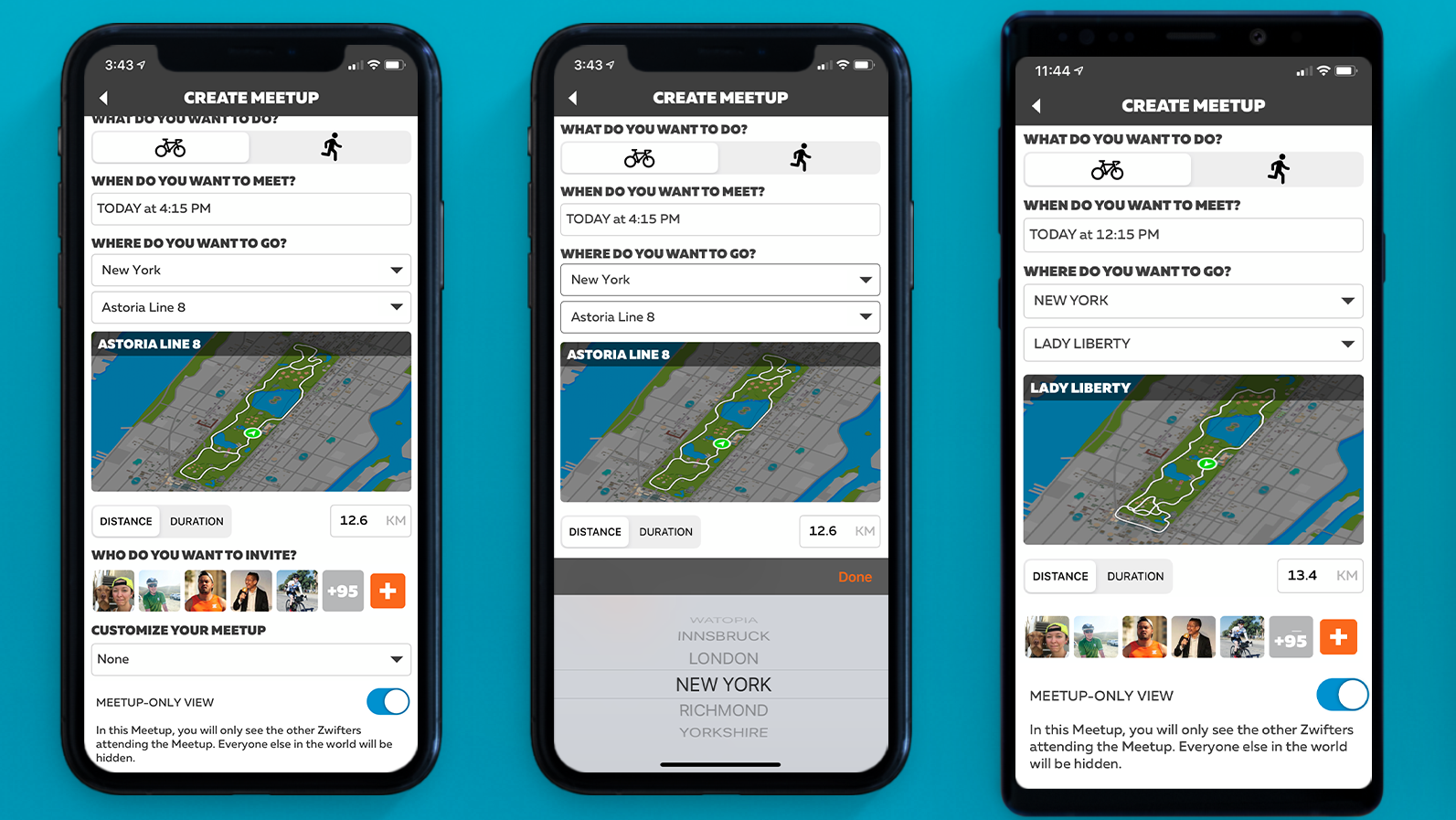
Some sports lend themselves more readily to social distancing. It’s possible to play golf while social distancing, for example, and many courses are still open for business, but it’s not a straightforward business. You’ll need to disinfect your clubs, avoid using carts (they’re hard to clean thoroughly), keep out of locker rooms, and not touch any flags.
If that’s too much hassle, or you’d rather not take the risk, Golf Club VR is well worth a look. It’s adapted from the original Golf Club simulator, and with an HTC Vive, Oculus Rift or Valve Index VR headset, is surprisingly immersive. Some dedicated golfers have even got experimental with their VR controllers and adapted them using actual golf club shafts.
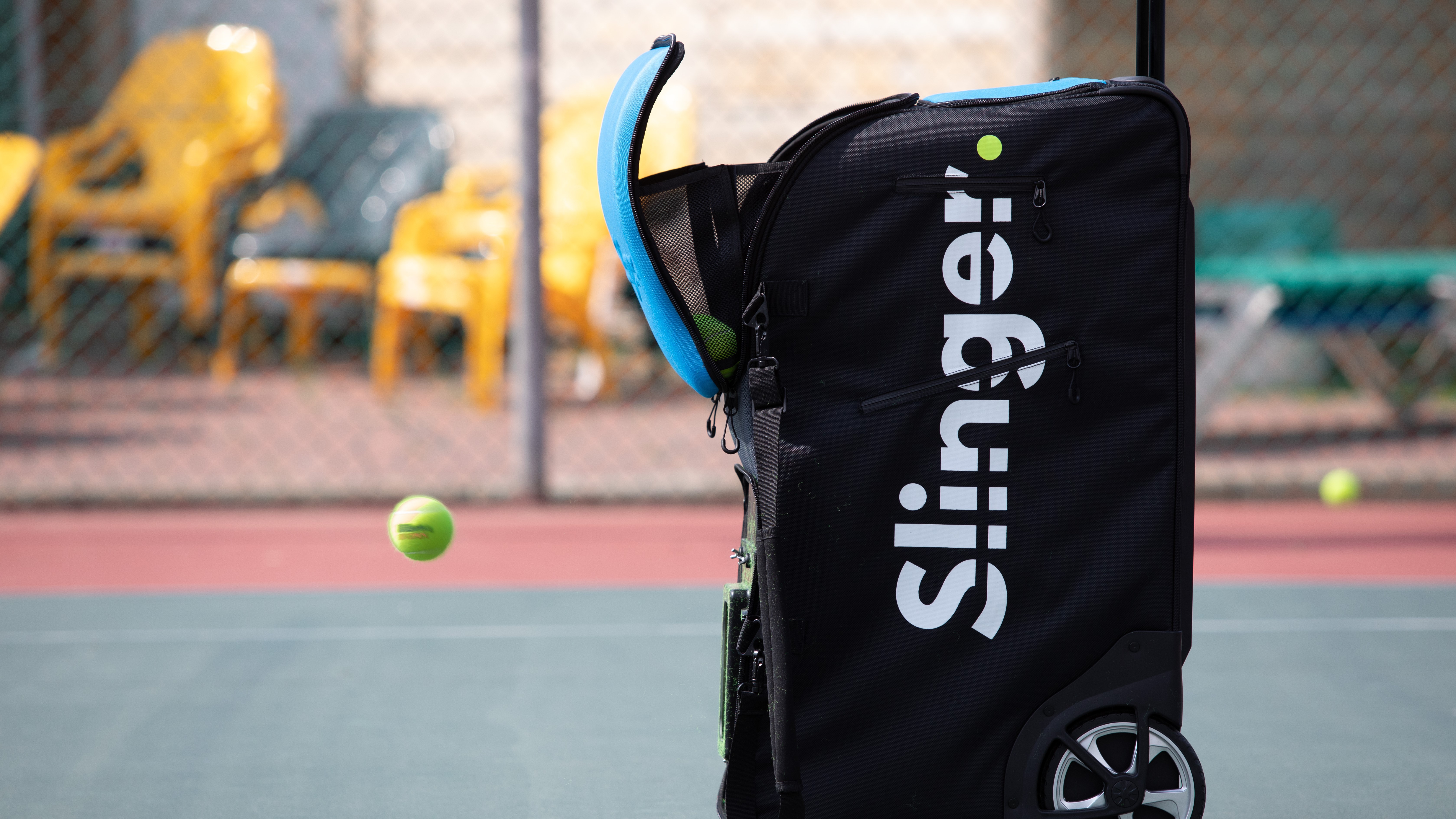
Tennis is less suited to VR, but you could use your time in isolation to work on your skills. What better way to celebrate the end of lockdown than reuniting with your friends and absolutely thrashing them at tennis?
Tennis ball launchers have been around for years, but high quality ones (meant for training rather than for playing with your dog) are usually cumbersome, heavy and difficult to manage alone.
The Slinger Bag is an alternative that can be set up by one person in a few minutes. It can hold and fire 72 balls, and is styled like a lightweight wheeled suitcase so you can easily trundle it to the court without anyone to help. There’s a telescopic tube for picking up the balls when you’re done.
Shopping
When it’s time to stock up on provisions, placing a grocery order online is perhaps the easiest option, but only if you can secure a delivery slot.
If you need to head out to the store yourself, one of the easiest ways to avoid getting too close for comfort is to take a quick look at Google’s ‘popular times’ graph (accessible through Google Search or Maps) to see when it’s likely to be quiet.
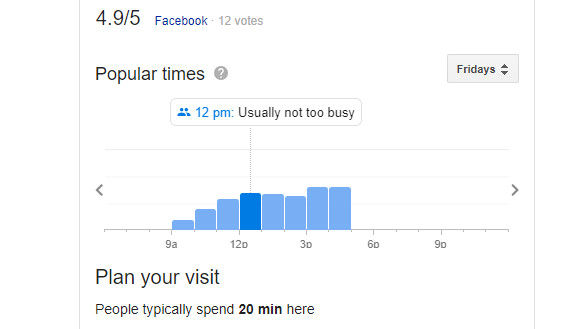
Most of the data used to create these graphs will have been gathered before lockdown started, so they won’t necessarily be entirely accurate, but they should still give you a good idea of when the queues are likely to be shortest.
At work
Working from home is the most straightforward way to keep your distance from others, but there are lots of situations where that’s just not possible. Safe Spacer is a wearable designed for workplaces where you’re going to be moving around, dodging colleagues and visitors.
If you’re about to get too close for comfort, the device will alert you with a flashing light, vibration or audio alarm. It can also log any accidental contacts between people, though no data apart from the device ID and proximity is stored.
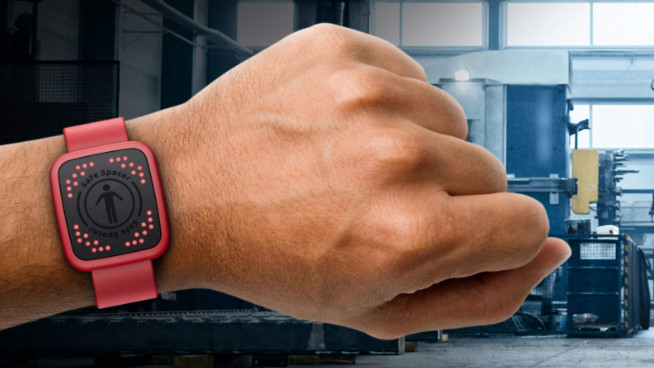
It can be worn as a watch, on a lanyard or kept in a pocket, and because it’s waterproof, it can be easily disinfected at the end of the day.
Safe Spacer will be available to buy later this year for $99.99 (about £80 / AU$150) each, with discounts for organizations buying a batch. One for small business owners to consider.
In the park
Safe Spacer is a great idea for workplaces, but only works if everyone is wearing one. If you’d like to talk a walk (and local rules permit it) while keeping your distance from others, Strava offers an unusual helping hand. Strava Global Heatmap shows the streets that are most popular with the app’s users (the busier, the hotter) so by plotting a route that avoids these, you’re less likely to wind up weaving around people.
As with Google's charts, the map uses data gathered over the course of several months, so doesn't necessarily reflect the way things are now, but should still give you a good guide as to the busiest and quietest streets.
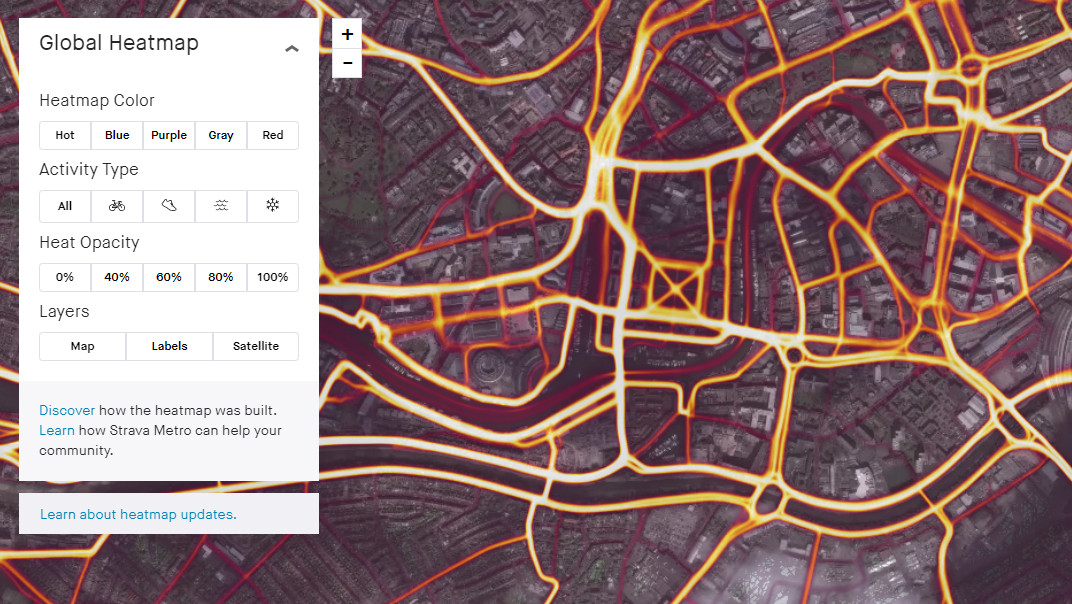
Of course, there may be reasons why some of these routes are less traveled (lack of proper surfacing, for example) so it would be wise to check the lay of the land using Google Street View before heading out if you’re not familiar with the area.
It can be easy to forget about distancing when you’re enjoying some fresh air though, which is why officials in Singapore have chosen to put Boston Dynamics’ four-legged robot Spot to use patrolling parks. The robot (currently being trialled) is controlled remotely by an operator who checks how close people are standing, and plays pre-recorded messages reminding people not to get too cozy.
It’s a neat idea, but being monitored by a robot is rather unnerving – and not too effective when the sheer novelty prompts people to gather together and take photos. A robot strutting around a park is far more interesting than anything else you're likely to see while self-isolating.
- The best webcams: everything you need for video conferencing.
0 comments:
Post a Comment